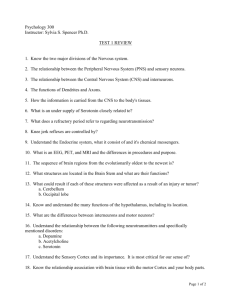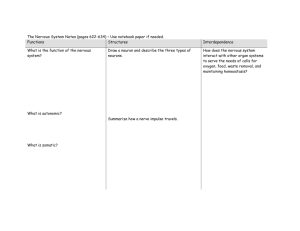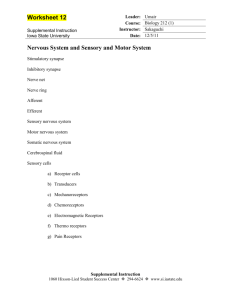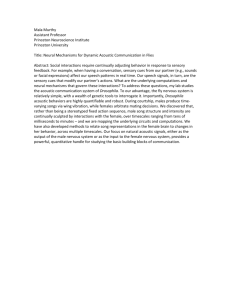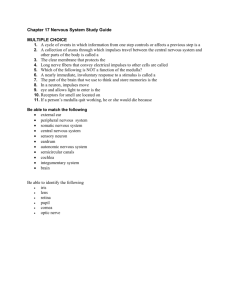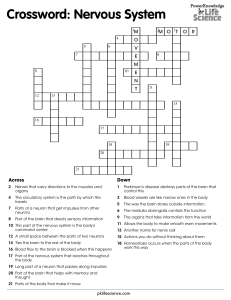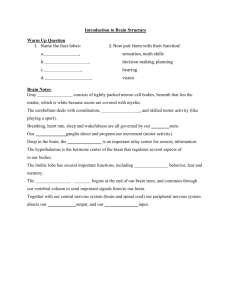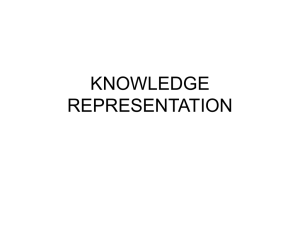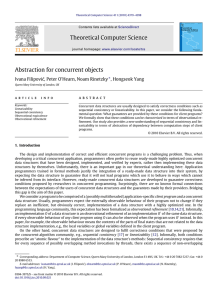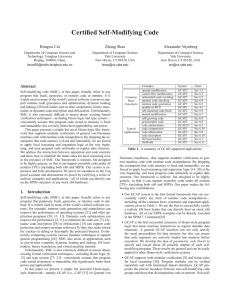The Fundamentals
advertisement
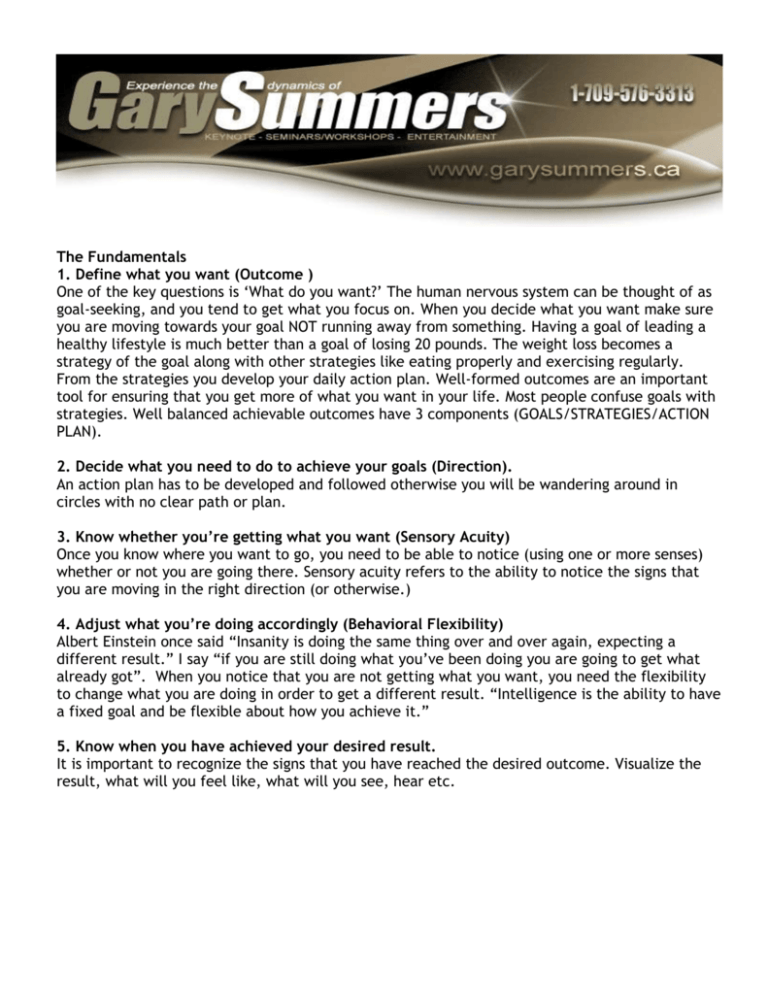
The Fundamentals 1. Define what you want (Outcome ) One of the key questions is ‘What do you want?’ The human nervous system can be thought of as goal-seeking, and you tend to get what you focus on. When you decide what you want make sure you are moving towards your goal NOT running away from something. Having a goal of leading a healthy lifestyle is much better than a goal of losing 20 pounds. The weight loss becomes a strategy of the goal along with other strategies like eating properly and exercising regularly. From the strategies you develop your daily action plan. Well-formed outcomes are an important tool for ensuring that you get more of what you want in your life. Most people confuse goals with strategies. Well balanced achievable outcomes have 3 components (GOALS/STRATEGIES/ACTION PLAN). 2. Decide what you need to do to achieve your goals (Direction). An action plan has to be developed and followed otherwise you will be wandering around in circles with no clear path or plan. 3. Know whether you’re getting what you want (Sensory Acuity) Once you know where you want to go, you need to be able to notice (using one or more senses) whether or not you are going there. Sensory acuity refers to the ability to notice the signs that you are moving in the right direction (or otherwise.) 4. Adjust what you’re doing accordingly (Behavioral Flexibility) Albert Einstein once said “Insanity is doing the same thing over and over again, expecting a different result.” I say “if you are still doing what you’ve been doing you are going to get what already got”. When you notice that you are not getting what you want, you need the flexibility to change what you are doing in order to get a different result. “Intelligence is the ability to have a fixed goal and be flexible about how you achieve it.” 5. Know when you have achieved your desired result. It is important to recognize the signs that you have reached the desired outcome. Visualize the result, what will you feel like, what will you see, hear etc. Outcomes & Directions The human nervous system is ‘goal-seeking’ and will always tend to organize around a specific result or set of results. These results are referred to in NLP as ‘outcomes’. A well-formed outcome or direction has the following attributes: 1. Stated in the positive (“What do you want?”) Negatives are not processed by the nervous system in the same way that they are linguistically (eg. The command “Don’t think of a purple hippopotamus” is difficult to obey.) It is therefore most effective to state any desired outcome or direction in the positive. In other words state the outcome in the behavior you want as opposed to the behavior you want to eliminate. So instead of saying “don’t be late” SAY “be on time” This way you focus on what you want NOT on what you DON’T want. 2. Sensory evidence (“How will you know you’ve got it?”) The outcome should be evidenced in terms of what you will see, feel and hear when you’ve got it (at the very minimum.) This gives the nervous system a rich representation of the desired result. When you state you want to be happy – what does this mean as happiness has a different meaning for different people. By deciding what you will see, hear and feel when you are happy your subconscious mind will continue to work until you achieve the desired result. 3. Initiated & maintained by the individual who wants it It is not possible to control the behavior and internal states of other people; we are only responsible for our own behavior and internal states. Well-formed outcomes cannot be dependent on the behaviors and emotions of other people. They must initiated and maintained by the person who wants the outcome /direction. 4. Preserves the positive by-products of the current situation Every behavior and every current situation (including ‘problem’ states) has some positive intention, often outside of conscious awareness. It is important to maintain this in the desired state / situation. In other words we can choose to learn from our circumstances or not. By maintaining a positive attitude you tend to continue to move towards your goals. 5. Ecological The desired outcome must be appropriate to the wider system to which the individual belongs. It is important to examine how it will affect (eg.) family, friends, colleagues, financial situation, time availability, sense of self etc. Challenge: Discover how many areas of your life can become more effortless and enjoyable as you begin to structure what you want using the well-formed outcome conditions.
